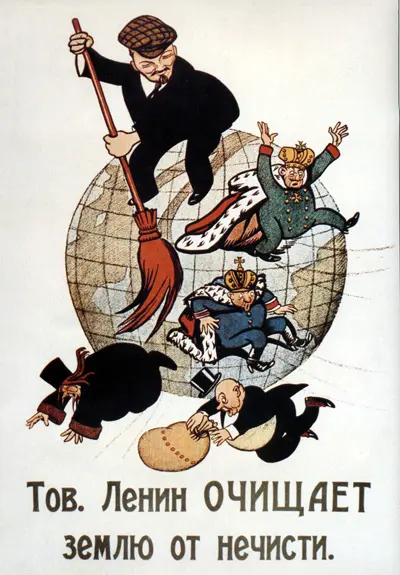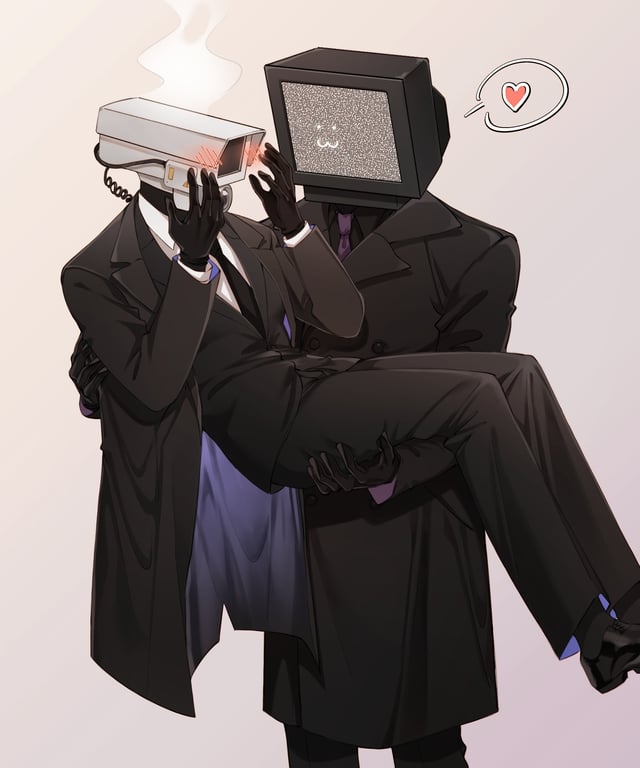The Battle of Poitiers on 19 September 1356 CE was the second great battle of the Hundred Years' War (1337-1453 CE) after Crécy (1346 CE) and, once again, it was the English who won. Edward the Black Prince (1330-1376 CE), son of Edward III of England (r. 1327-1377 CE), masterminded victory largely thanks to the continued domination of the powerful longbow weapon, Edward's excellent defensive positioning, and the outdated reliance of heavy cavalry by the French leadership. A major consequence of the battle was that it allowed Edward III to keep 25% of France under the 1360 CE Treaty of Brétigny.
The Hundred Years' War
In 1337 CE Edward III of England was intent on expanding his lands in France, and he had the perfect excuse as via his mother Isabella of France (b. c. 1289 CE and the daughter of Philip IV of France, r. 1285-1314 CE), he could claim a right to the French throne as nephew of Charles IV of France (r. 1322-1328 CE). Naturally, the current king, Philip VI of France (r. 1328-1350 CE) was unwilling to step down and so the Hundred Years' War between France and England began. The name of the conflict, derived from its great length, is actually a 19th-century CE label for a war which proceeded intermittently for well over a century, in fact, not finally ending until 1453 CE.
The English had won the first major battle of the wars at Crécy in August 1346 CE and then captured Calais in July 1347 CE. The Black Death plague pandemic arrived in Europe from 1347 CE and England the following year but the Hundred Years' War would resume in the middle of the next decade. As preparation for another major confrontation, Edward III's eldest son, Edward of Woodstock, aka Edward the Black Prince, was charged with torching as many southwestern French towns, villages and crops as possible in 1355-6 CE, just as he had done before the Battle of Crécy ten years before. Gascony was raided and Bordeaux captured which the Black Prince thereafter used as his base for further destructive sorties. This strategy, known as chevauchée, had multiple aims: to strike terror into the locals, provide free food for an invading army, acquire booty and ransom for noble prisoners, and ensure the economic base of one's opponent was severely weakened, making it extremely difficult for them to later put together an army in the field. The region Edward attacked was a major contributor to the French king's coffers, and this brutal form of economic warfare weakened the enemy and obliged the French king to ultimately engage the enemy in a large-scale battle.
Battle
Following his ravaging of southwest France, the Black Prince had intended to link up with a second English army coming down from Normandy. This northern army, which had also been ravaging the towns and countryside, was led by Henry of Grosmont, the Duke of Lancaster. However, John II saw the danger and positioned his army around Chartres between the two enemy forces, obliging Edward to move back down to Gascony.
Then the French army swept southwards and surprised the Black Prince's mixed force of English and Gascon troops on 18 September 1356 CE. Both sides used the breathing-space to strengthen their position: Edward by digging trenches and forming barricades with his supply wagons, John by assembling more troops. At this stage, some of the French commanders pushed for a more cautious but guaranteed strategy: surround the English and starve them out. King John, though, was confident in his numerical supremacy and opted for an all-out attack on Edward's position.
The next day a mighty battle ensued 6.5 km (4 miles) from Poitiers in the mixed terrain of vineyards, woods, hedges, and marshes. Just as at Crécy, the French outnumbered their opponents, in this case perhaps by 35,000 to 7,000 (or 50,000 to 8,000 according to higher estimates favoured by some historians). In another repeat of Crécy, the English had taken up the better position on a small hill protected in the rear by a wood and in front by hedges and marshland. The French would have to narrow their battle lines and attack in waves uphill, tiring their knights and nullifying their numerical advantage.
The battle began around 8.00 a.m. and was over by lunchtime. Yet again the French commanders proved to be ill-disciplined and wilful, making any sort of strategic troop movements impossible. Various French cavalry charges, which were often uncoordinated between commanders, were broken up by the tight defensive lines of the English, arranged in the now customary three divisions (two at the front and one at the rear), and the terrain dotted with thick hedges. A feigned retreat led by the Earl of Warwick tempted another rash cavalry charge while Captal de Buch, the captain of the Gascon troops, raced around to the rear of the French causing still more confusion. Sir Geoffrey de Chargny, the standard-bearer of the French flag the Oriflamme - a signal to give no quarter - was cut down as the battle descended into vicious hand-to-hand combat.
Besides being repeatedly outmanoeuvred, once again the French could not find an answer to the range, power and accuracy of the English longbow. Another repeated English strategy was to have knights fight on foot for greater mobility in the confined terrain. The French followed suit, with King John himself leading his men on foot, but then an English cavalry reserve swept in and won the day. Edward's army suffered only a few hundred casualties compared to the thousands of fallen Frenchmen.
King John Captured
Around 2,000 French knights were captured or killed, including the constable of France, both of the country's two marshals, 13 counts, five viscounts, 21 barons, an archbishop, and Prince Philip. Even John himself was captured, the king having surrendered by giving his right glove to Sir Denis de Morbecque and then reassuring the victors that he would fetch a tidy ransom. Indeed, all of these nobles provided a huge potential for cash returns but John's was astronomical, truly a king's ransom at 4 million gold écus (triple David II of Scotland's ransom, another captive king held by Edward III). So massive was this figure John was released in order to raise it from his kingdom while his son Louis was kept hostage in Calais. When Louis escaped, King John voluntarily handed himself back over for confinement, such were the unwritten rules of medieval chivalry.
Aftermath
After Poitiers, France, without its leaders, descended into the abyss of chaos. Most immediately, the disbanded French mercenaries who had fought so poorly caused havoc as they raided the surrounding area. Then King Edward pressed his advantage by marching on Rheims in 1359 CE, fully intending to have himself made king of the French where their monarchs were traditionally crowned. Rheims proved impregnable, though, and a harsh winter so reduced Edward's army he was obliged to start peace talks. In May 1360 CE a treaty was signed between England and France. Under the Treaty of Brétigny, Edward's claim to 25% of France (mostly in the north and south-west) was recognised and, in return, he gave up any ambition for the French crown itself.
The Hundred Years' War carried on as Charles V of France, aka Charles the Wise (r. 1364-1380 CE) proved much more capable than his predecessors and began to claw back the English territorial gains. Edward III was now too old to campaign and was showing signs of senility. The Black Prince died, probably of dysentery, in June 1376 CE and so England's martial prowess suffered a serious setback. Now, the only lands left in France belonging to the English Crown were Calais and a thin slice of Gascony. During the reign of Richard II of England (r. 1377-1399 CE) there was largely peace between the two nations but under Henry V of England (r. 1413-1422 CE), the wars flared up again and witnessed the great English victory at the Battle of Agincourt in October 1415 CE. Henry was so successful that he was even nominated as the heir to the French king Charles VI of France (r. 1380-1422 CE). Henry V died before he could take up that position, and the arrival of Joan of Arc (1412-1431 CE) in 1429 CE saw the beginning of a dramatic rise in French fortunes as King Charles VII of France (r. 1422-1461 CE) took the initiative. The weak rule of Henry VI of England (r. 1422-61 & 1470-71 CE) saw a final English defeat as they lost all French territories except Calais at the wars' end in 1453 CE.
Megathreads and spaces to hang out:
- ❤️ Come listen to music and Watch movies with your fellow Hexbears nerd, in Cy.tube
- 💖 Come talk in the New Weekly Queer thread
- 💛 Read and talk about a current topics in the News Megathread
- ⭐️ September Movie Nominations ⭐️
reminders:
- 💚 You nerds can join specific comms to see posts about all sorts of topics
- 💙 Hexbear’s algorithm prioritizes comments over upbears
- 💜 Sorting by new you nerd
- 🌈 If you ever want to make your own megathread, you can reserve a spot here nerd
- 🐶 Join the unofficial Hexbear-adjacent Mastodon instance toots.matapacos.dog
Links To Resources (Aid and Theory):
Aid:
Theory:






